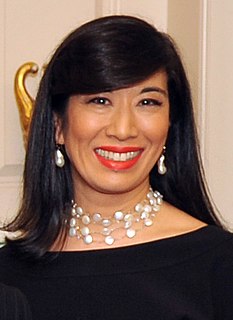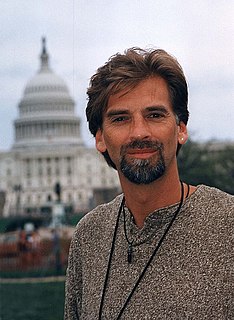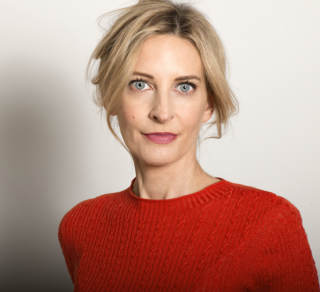A Quote by Andrea Jung
Women are clearly the major consumers in far more than just female categories. It doesn't matter whether it is purchases of cars, cosmetics, or even products for men, female consumption power is the leading consumption power in the world. Any company that overlooks the woman as the decision maker is making a huge mistake.
Related Quotes
Car prices play a large role in calculating PPPs even while they play no role whatsoever in the consumption or consumption needs of the poor. And the prices of rice, bread and beans play a small role in calculating PPPs even though they play a huge role in meeting the consumption needs of the poor. So the World Bank's method of comparing and converting everything at general purchasing power parities into US dollars is highly distorting within an exercise whose purpose it is to determine whether households are or are not capable of meeting their basic consumption needs.
As I looked more carefully at the listening matrix I saw that during the past twenty years we had taken a magnifying glass to the first of these four quadrants, the female experience of powerlessness. I saw I was subconsciously making a false assumption: The more deeply I understood women's experience of powerlessness, the more I assumed men had the power women did not have. In fact, what I was understanding was the female experience of male power.
The illusion that consumption - and its correlative, income - is desirable probably stems from too great preoccupation with what Knight calls "one-use goods," such as food and fuel, where the utilization and consumption of the good are tightly bound together in a single act or event. ... any economy in the consumption of fuel that enables us to maintain warmth or to generate power with lessened consumption again leaves us better off. ... there is no great value in consumption itself.
Men: Stand in solidarity with women. Women, if you were born female, you were born on a battlefield. You will be punished for even saying that out loud, but the grim truth is you're going to be punished no matter what for the 'sin' of being female. Battering is the most commonly committed violent crime in the United States. That's a man beating a woman. Globally, half of all women will experience life-threatening violence from a man. Half. That's more hatred than I can comprehend. Right now, that battlefield is such a slaughter that we can't even collect our wounded.
Purchasing power is a license to purchase power. The old proletariat sold its labour power in order to subsist; what little leisure time it had was passed pleasantly enough in conversations, arguments, drinking, making love, wandering, celebrating and rioting. The new proletarian sells his labour power in order to consume. When he’s not flogging himself to death to get promoted in the labour hierarchy, he’s being persuaded to buy himself objects to distinguish himself in the social hierarchy. The ideology of consumption becomes the consumption of ideology.
This is a culture of female display. And the reason it's a culture of female display is that on the Upper East Side women far outnumber men, if you do the sex ratios. I can't say exactly what they are, but you could google it. People have said two to one. So, it's a female display culture because sex ratios are skewed toward men, and they sort of have their choice, even if they're married.... Also, women are economically dependent on men, and so there's that aspect of needing to perform your beauty and your scarcity.
We need more female directors, we also need men to step up and identify with female characters and stories about women. We don't want to create a ghetto where women have to do movies about women. To assume stories about women need to be told by a woman isn't necessarily true, just as stories about men don't need a male director.
I want men and women to both feel a part in the flourishment of female power. So I want to celebrate that power that women have, that they acquired and are still acquiring all over the world. And it's kind of my way of joining the movement and bringing positive attention to an overgrowing awareness of females everywhere who are breaking the mold.


































